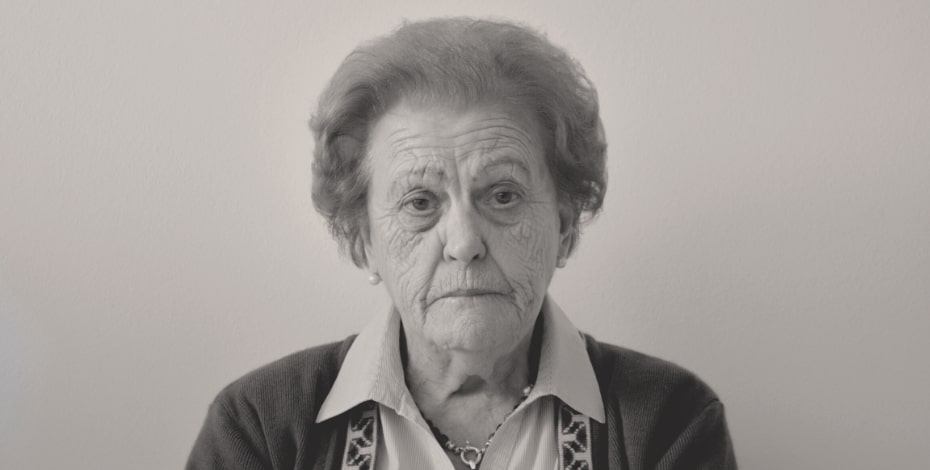
Advocating for effective care in a disjointed residential aged care sector

Reforms to the current funding model for physiotherapy aged care are desperately needed—just ask those at the coalface. Lindsey Brett and Natasha Pocovi draw on some of the views of Australian physiotherapists collected anonymously as part of their study into the barriers and facilitators for physiotherapy in residential aged care facilities.
Residential aged care facilities (RACFs) in Australia are a common setting for physiotherapy employment; in 2019, approximately eight per cent of the profession predominantly worked in RACFs (Department of Health 2020).
Physiotherapists possess the skills and knowledge to assist with areas such as mobility, deconditioning, functional limitations, pain management, falls prevention, oedema management, incontinence management, and manual handling education—all relevant to the care of older Australians (APA 2020).
Despite this toolkit of skills, a recent systematic review found most RACFs worldwide provided less than 25 per cent of older adults with physiotherapy, bringing into question whether physiotherapy services are available to those at greatest risk of deterioration (Brett et al 2019).
In Australian RACFs, older adults contribute 85 per cent of a single age pension towards their living expenses, as well as additional contributions towards accommodation and care costs (dependent on means testing; Aged Care Financing Authority 2019).
More than one-third of Australians aged 50 years and older do not have private health insurance to subsidise additional healthcare costs (Councils on the Ageing 2018).
Aged care services are subsidised by the Australian Government, though funding predominately covers personal care, nursing, and domestic assistance (The Office of the Royal Commission for Commissioners 2020).
Physiotherapy in RACFs is funded by the government under the Aged Care Funding Instrument (ACFI), for which only 75 per cent of older adults in RACFs are eligible (APA 2020).

Dr Lindsey Brett
As a result, there is a high risk of under-servicing and inequitable provision of physiotherapy in RACFs.
ACFI is the main government subsidy for the provision of care in Australian RACFs, but is also viewed by physiotherapists as one of the main barriers to the implementation of effective care.
Physiotherapists are only funded by ACFI to provide massage, electrotherapy, and other technical equipment for pain management over 20 minutes, four days per week.
These interventions and parameters lack strong evidence as effective components of chronic pain management (Shrestha et al 2013), and fail to treat other impairments which older Australians potentially face.
The restricted funding, and limited utilisation of evidence-based physiotherapy in RACFs is potentially contributing to the substandard care highlighted by the Royal Commission into Aged Care Quality and Safety (Briggs & Tracey 2019).
In 2019, we conducted an anonymous nationwide survey of 222 physiotherapists predominately working in RACFs to attain workforce data and understand the barriers and facilitators to physiotherapy delivery in Australian RACFs.
An emergent theme was the battle to advocate for effective care for older adults in RACFs.
Physiotherapists have to navigate a disjointed and restrictive system, where the main funding source enforces care that is ineffective and lacks strong evidence.
Physiotherapists are autonomous practitioners who make decisions centred on their knowledge, evidence- based practice, and consumer preferences. Yet this does not appear to be the case in many Australian RACFs.
Physiotherapists and older adults are dictated to by organisations that follow the restrictive rules of the ACFI, and which refuse to fund evidence-based physiotherapy from their own revenue:
‘Despite me arguing that movement is more effective [than massage] for OA management, they [RACF management] are not interested and actually oppose this treatment.’
Providing appropriate care while satisfying the expectation of facility managers was a common battle reported by physiotherapists in our study:
‘The current system is entirely focused on money and not at all focused on client care or need.’
This type of attitude, culture and practice puts pressure on physiotherapists to provide ill-fitting treatments:
‘ACFI coordinators make inappropriate referrals to put residents on the pain management program.’
The inability of physiotherapists to treat based on their assessment findings and clinical judgement leads to high levels of job dissatisfaction:
‘… the ACFI system is an insult to any good physio …’
This dissatisfaction risks driving out highly skilled clinicians from this sector, thus impacting the ability of Australian RACFs to provide effective and appropriate care for older adults now and in the future.
It was evident through our study that compassion and genuine care for the welfare of patients is what drives many physiotherapists to remain working in this sector, despite its many difficulties:
‘I only hang in for the residents …’
Support from colleagues was another driving factor, where:
‘… supportive team leaders who are like minded and genuinely care for the welfare of resident and support you …’
was deeply valued by clinicians.
Along with restricting the effective practice of physiotherapists, ACFI provides perverse incentives that encourage dependence of older adults.

Natasha Pocovi
Unlike other countries such as Denmark, there is no reablement approach to care and associated funding in most Australian RACFs (Brett et al 2019).
A report from the Royal Commission into Aged Care Quality and Safety found the most common medical and healthcare concerns of older adults in RACFs were related to falls (Batchelor et al 2020).
Falls occur three-times more often in RACFs compared to the community, and are the most common cause of preventable deaths in this setting (APA 2020).
Yet there is no funding in RACFs for falls prevention and treatment, despite strong evidence that demonstrates the effectiveness of physiotherapist-led falls prevention programs (APA 2020).
We found physiotherapists report creatively applying their treatments within the ACFI constraints to manage such issues:
‘… ACFI treatments are actually unethical and I feel my time could be spent more effectively in other ways. So I try to maximise those 20 minutes that I have with residents each day and have them doing exercises (if able) while I provide the hands-on treatment.’
Changes to the funding and culture in Australian RACFs are required now, and thanks to the Royal Commission into Aged Care Quality and Safety, initial steps are being made.
Physiotherapists are ideally placed as members of the RACF multidisciplinary team to help facilitate change:
‘Physios are very willing to perform actual physiotherapy with all residents …’
As a profession, it is important we continue to take a proactive approach in lobbying for better care of older Australians living in RACFs, and support the implementation of recommendations from the Royal Commission into Aged Care Quality and Safety Final Report.
This report has made several recommendations to facilitate the funding and integration of high-quality allied healthcare, based on assessed needs for all older adults in RACFs (Pagone & Briggs 2021).
Physiotherapists have been included in the list of allied health professionals that RACF providers should employ, or otherwise retain, to provide services to older adults in accordance with their individual care plans by 1 July 2024 (Recommendation 38).
Allied health professionals have been included as required members of specialist multidisciplinary outreach services that, among other services, should provide proactive care and rehabilitation to all older adults based on clinical need by 1 January 2022 (Recommendation 58).
As well as recommendations from the Royal Commission into Aged Care Quality and Safety Final Report, another key change in Australian RACFs relevant for physiotherapists is the development of a new funding tool planned to be implemented in 2022, which will potentially include allied health care.
Educating older adults, their families, and other members of the multidisciplinary team on the importance of physiotherapy can demonstrate the extent and value of our skills and the ability to influence reablement in RACF settings:
‘… residents call us “massage therapists” they do not know we have so many more tools under our belt!’
An additional example of change is the implementation of the COVID-19 Allied Health Package.
This package provides funding for physiotherapists, occupational therapists, and exercise physiologists to provide group-based exercise for older adults living in RACFs that were impacted by COVID-19 lockdowns in 2020 (Department of Health 2021).
This funding is only for selected RACFs for a limited time. Unfortunately it has taken a global pandemic for the government to realise the importance of exercise for older adults in RACFs.
However, it is progress towards achieving a reablement approach to care in RACFs.
Australian RACFs are likely to undergo major reforms over the coming years. Here lies an opportunity for physiotherapy to vastly expand in this sector, reigniting the passion of aged care physiotherapists who have felt restricted and unfulfilled by ACFI rules for too long.
With a reablement approach to care and funding, the physiotherapy profession can make a real difference to the lives of older Australians, while encouraging more physiotherapists to join and remain in the varied and rewarding field that is aged care.
Dr Lindsey Brett is a postdoctoral research fellow who holds a conjoint position in the Department of Health Professions at Macquarie University and the Physiotherapy Department at the Prince of Wales Hospital. Her research and clinical interests are on improving care and physiotherapy provisions for older adults, with specific interests in dementia and sarcopenia.
Natasha Pocovi is a research assistant, casual tutor and PhD candidate in the Department of Health Professions, Macquarie University. Her research interests are in improvement of care delivery within the physiotherapy profession and also examining the prevention of musculoskeletal pain (NHMRC-funded WalkBack Trial).
- References
1. Australian Government Department of Health. Health Workforce Data. (2020) https://hwd.health.gov.au/publications.html#alliedh16; [Accessed 27/01/2021].
2. Australian Physiotherapy Association. Submission to the Royal Commission Into Aged Care Quality and Safety. Camberwell: APA; 2020.
3. Brett L, Noblet T, Jorgensen M et al. (2019) The use of physiotherapy in nursing homes internationally: A systematic review. PLoS ONE 14:(7) e0219488.
4. Aged Care Finacing Authority. Seventh report on the funding and finacing of the aged care industry. Canberra: Australian Government; 2019.
5. Councils on the Ageing. State of the (older) nation 2018. (2018) https://www.cota.org.au/wp-content/uploads/2018/12/COTA-State-of-the-Old... [Accessed 11/02/2021].
6. Royal Commissioners. Financing aged care. In: Safety RCiACQa, editor. Canberra: Commonwealth of Australia; 2020.
7. Australian Physiotherapy Association. Aged Care Royal Commission Impact of COVID-19 on Aged Care supplementary submission. Camberwell: APA; 2020.
8. Shrestha S, Schofield P, Devkota R. (2013) A critical literature review on non-pharmacological approaches used by older people in chronic pain management. Indian Journal of Gerontology 27:(1) 135-61.
9. Briggs L, Tracey R. Interim Report: Neglect. In: Safety RCiACQa, editor. Canberra: Commonwealth of Australia; 2019.
10. Batchelor F, Savvas S, Dang C et al. Inside the system: aged care residents’ perspectives. Parkville, Victoria, Australia: National Ageing Research Institute; 2020.
11. Department of Health. COVID-19 Allied Health Package Information for allied health professionals. In: Health Do, editor. Canberra: Australian Government; 2021.
© Copyright 2025 by Australian Physiotherapy Association. All rights reserved.





